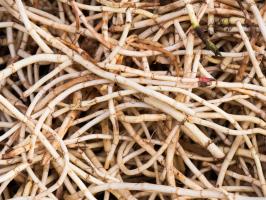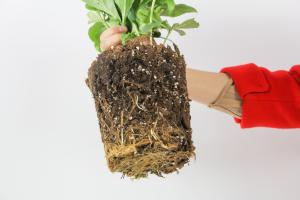How to Fix Overwatered Pot Plants
If you're an avid indoor gardener, you know how it feels to overwater your beloved plants. Overwatering is a common mistake that can damage the roots and ultimately kill the plant. Luckily, there are measures you can take to fix overwatered pot plants and prevent further damage.
Signs of Overwatering
Before you can fix your overwatered plants, you need to identify them. Here are some common signs of overwatering:
The soil is constantly wet or soggy.
The leaves are yellowing or browning and mushy to the touch.
The plant looks droopy, even though the soil is wet.
There is mold or fungus growing on the soil surface.
Steps to Fix Overwatered Pot Plants
If your plant is showing signs of overwatering, follow these steps to fix it:
Stop watering your plant immediately. Overwatering is often caused by watering too frequently, so allow the soil to dry out fully before watering again.
Remove the plant from its pot and inspect the roots. Healthy roots should be white, firm, and spread out. If you see dark, mushy roots, you may need to trim them with clean shears.
Replace the soil with a well-draining mix. A mixture of peat moss, perlite, and vermiculite is ideal for most indoor plants.
Place the plant back in its pot and water it lightly. Don't water again until the top inch of soil is dry to the touch.
Consider repotting your plant in a larger container to improve drainage and prevent overwatering in the future.
Preventing Overwatering
Preventing overwatering is the key to keeping your indoor plants healthy. Here are some tips to help:
Water your plants only when the top inch of soil is dry to the touch. Use a moisture meter to determine when your plant needs water.
Provide proper drainage for your plant. Make sure the pot has drainage holes and use a well-draining soil mix.
Avoid leaving your plants sitting in water. Empty any excess water from the saucer after watering.
Monitor your plant for signs of overwatering and adjust your watering schedule as needed.
By following these steps and preventive measures, you can fix overwatered pot plants and maintain their health for years to come.

 how many times do yo...
how many times do yo... how many planted tre...
how many planted tre... how many pine trees ...
how many pine trees ... how many pecan trees...
how many pecan trees... how many plants comp...
how many plants comp... how many plants can ...
how many plants can ... how many plants and ...
how many plants and ... how many pepper plan...
how many pepper plan...

































